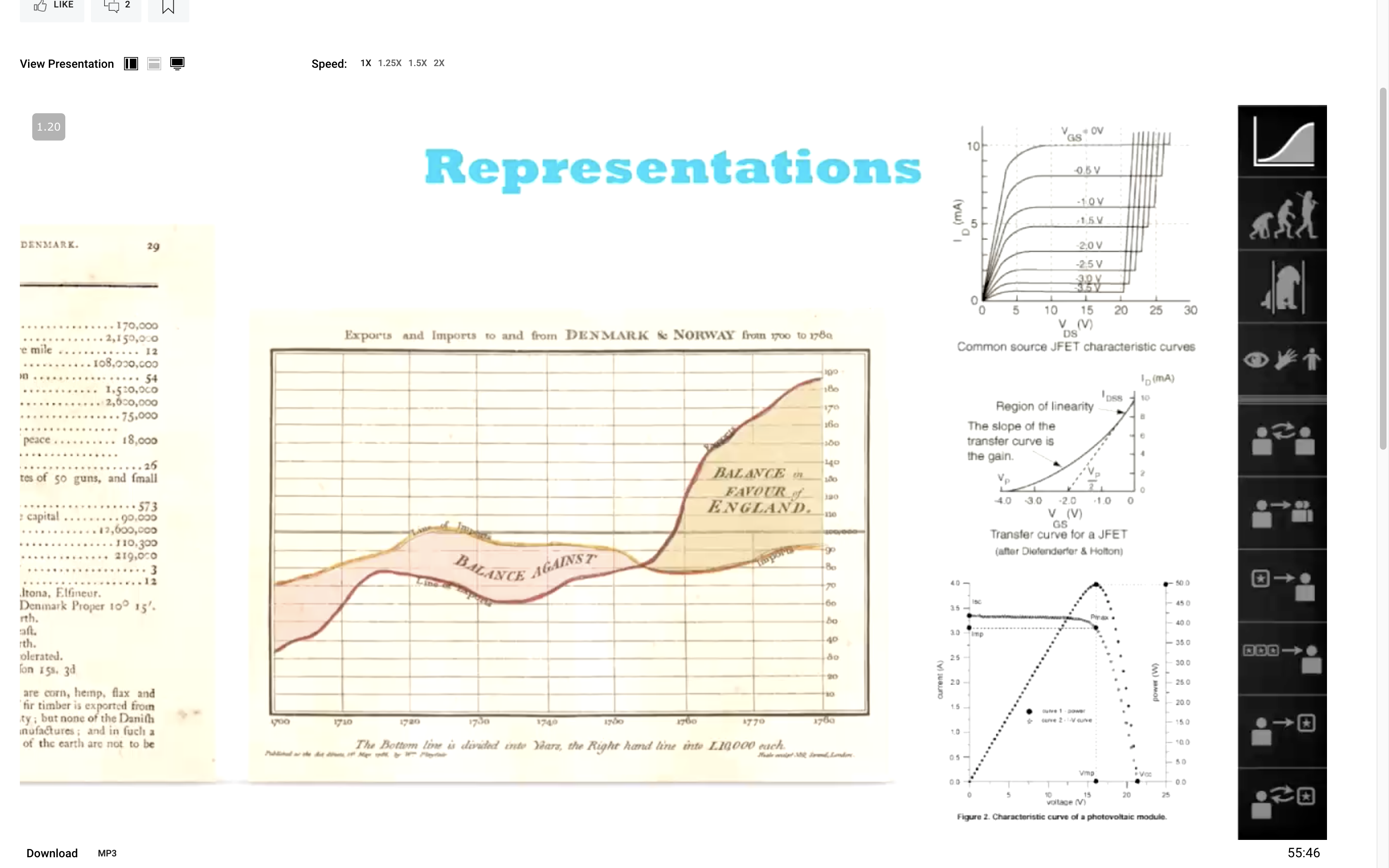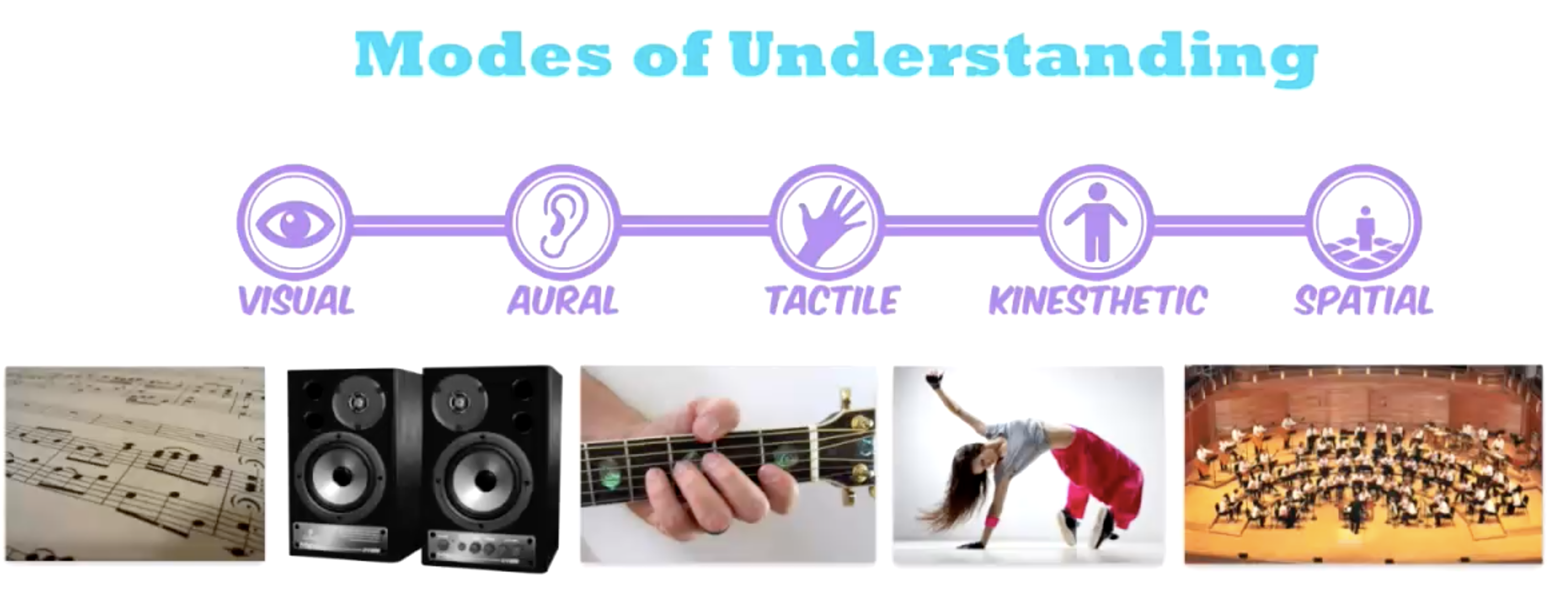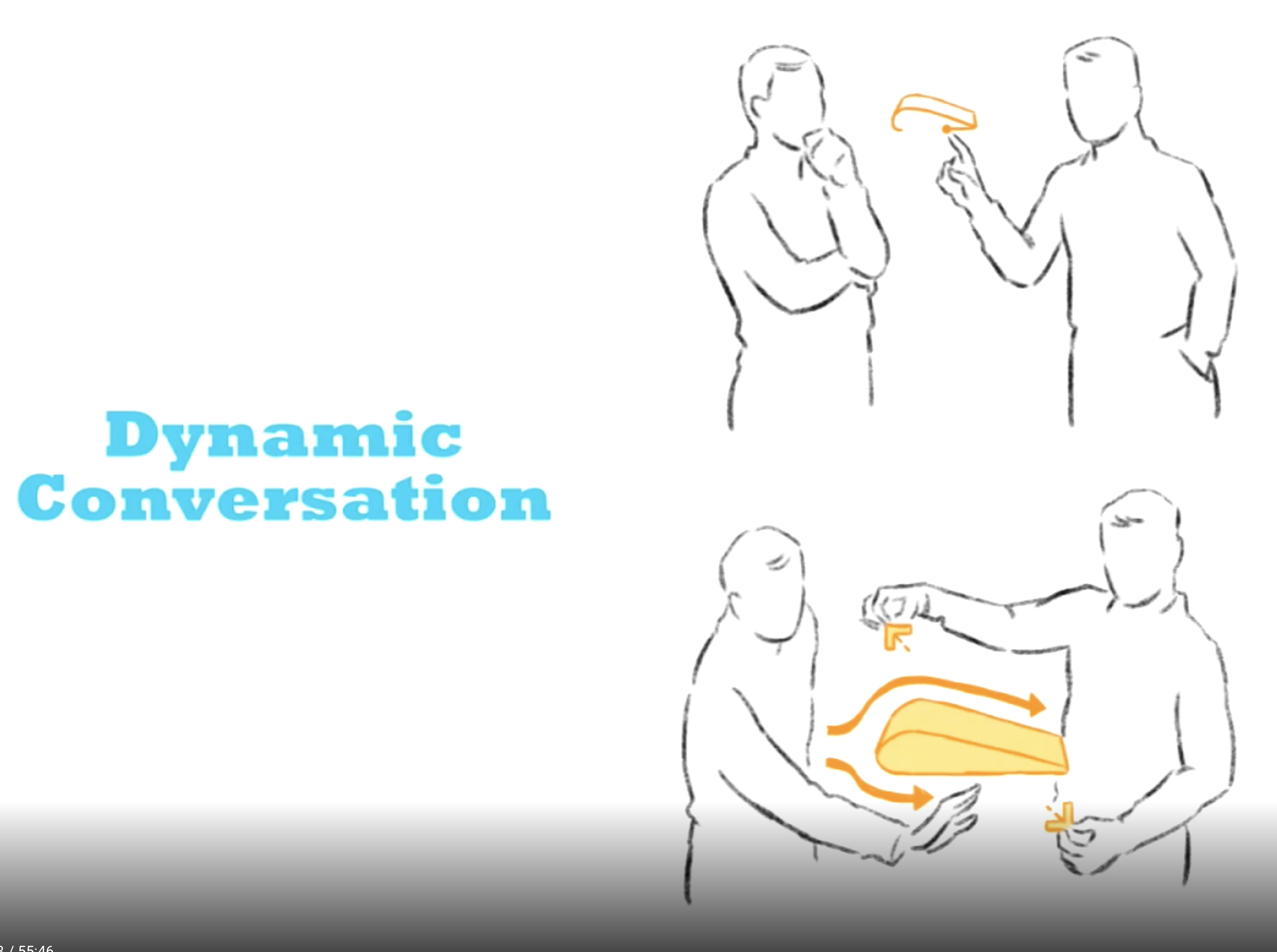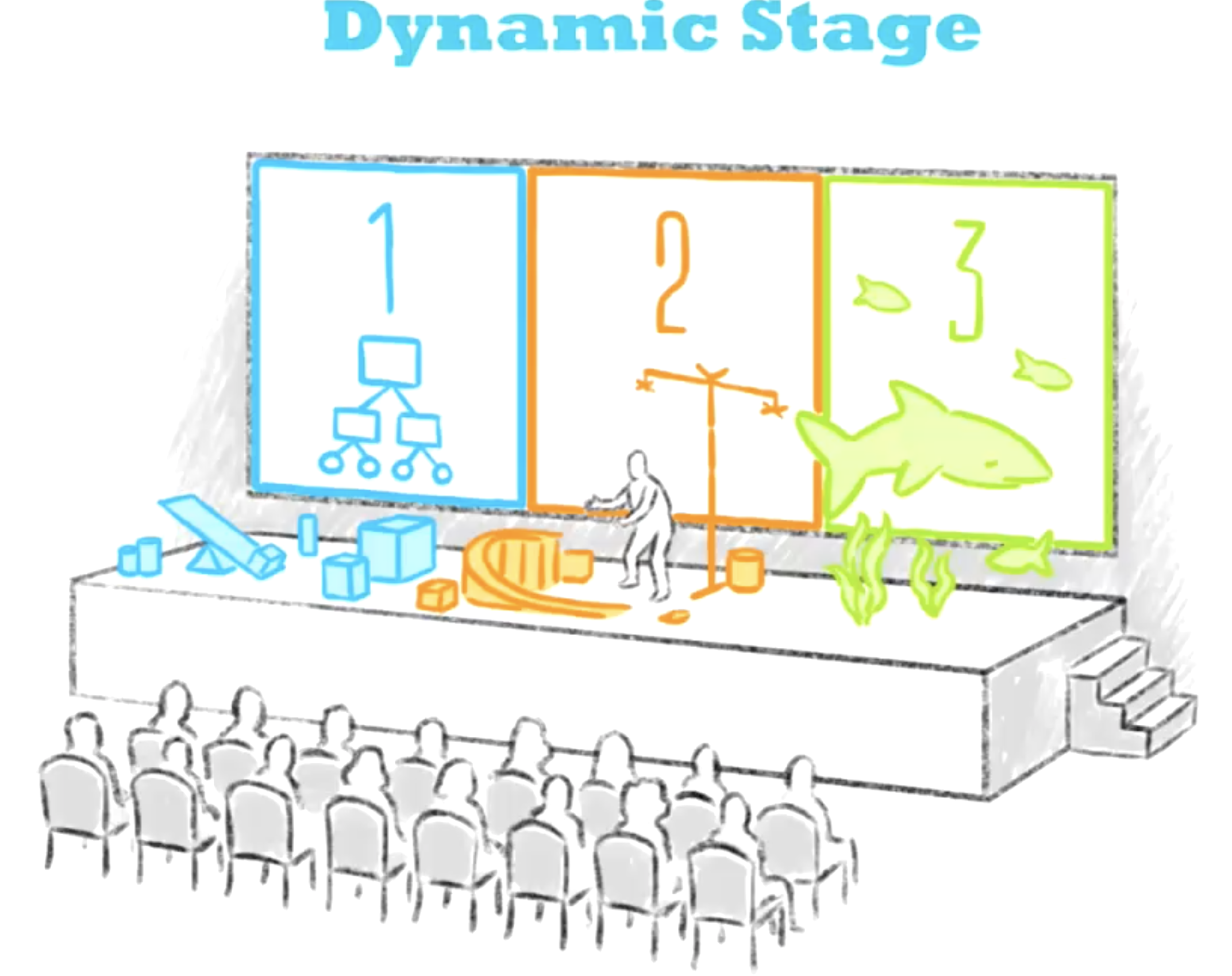Michael Shulman's Shared Notes
Powered by 🌱Roam GardenJanuary 27th, 2021
This is an "Orphan" page. Its core content has not been shared: what you see below is a loose collection of pages and page snippets that mention this page, as well as snippets of this page that were quoted elsewhere.
- Humane Representation of Thought, Talk by Bret Victor @Victor2014HumaneRepresentThought
- link: https://www.infoq.com/presentations/thought-representation/
- Date:: October 2014
- Citation (something like this)
- Victor, B. (2014) Human representation of thought [Keynote address]. SPLASH 2014 Conference, Portland, OR, United States. https://www.infoq.com/presentations/thought-representation
- Has done a lot of work prototyping how to tweak programming to be creating new ways to work with dynamic environments - like programming where you see the effects of what you're doing, or digital textbooks where you can manipulate elements and so play around with the concepts that the author is working to convey.
- This led him to start thinking, on a meta-level, of what was really happening.
- Representations
- Representations of thought - like the realization that we can abstract tables of data onto a sort of map
- So representations allow us to tap into latent capabilities that we already have, utilizing them to understand information in other ways
- Arabic numerals
- Algebraic notation
- Many great ideas of history, really think about new ways to represent thing
- Representations of thought - like the realization that we can abstract tables of data onto a sort of map
- Media is how we show the representations
- Often was done in print - but more powerful mediums, allow for more powerful representations
- More powerful mediums, allow us to think in more complex ways - and so can be credited for much of the intellectual progress of humanity
- When we invent technologies, they allow us to grow in some capabilities - but it's a double-edged sword, because they cut off other capabilities.
- Like working with printing press as our medium, that limits us in some ways
- me (Read/heard something recently about how all of our modern technology is still in many ways following paradigm of printing press - I think I didn't entirely agree, though)
- (think I heard it in a Clubhouse discussion, but didn't write it down because I didn't agree?)
- When we picture modern knowledge work, we picture working over a computer (or a little earlier, over books and paper - but similar idea). That's the medium shaping how we envision it.
- Argues that this style of knowledge work is inhumane:
- gw9FNcwO1
- Because "inhumane" means forcing someone to live in a way that severely constrains them.
- Limiting us to knowledge work in this medium limits how we think, takes away from our full range of intellectual capabilities.
- To understand that - let's look at what full range of capabilities are:
- Because "inhumane" means forcing someone to live in a way that severely constrains them.
- Modes of Understanding
- Visual, aural, tactile, kinesthetic, spatial
- We can often understand the same concept in each of these channels - and each channel adds understanding, and limiting those takes away from how we understand
- Not the only person to say we understand the same thing multiple ways. Jerome Bruner's version:
- enactive, say ride a bike as an action, your understanding lives in the performing of it
- iconic, say understand graphic understanding of how gear ratios work, a wordless way of understanding
- symbolic, language to represent idea (which is probably most common for knowledge workers.)
- Important to remember that speech is purely symbolic - most important was adding writing, which is making it iconic
- Howard Gardner pushed this forward, said there are multiple representations:
- (Not that everyone has 1 - everyone has all, and designing understanding across these adds capabilities.)
- Visual, verbal, logical, musical, bodily, interpersonal, intrapersonal, natural
- Kieran Egan in The Educated Mind has another, that is more subtle (somatic, mythic, romantic, philosophic, ironic)
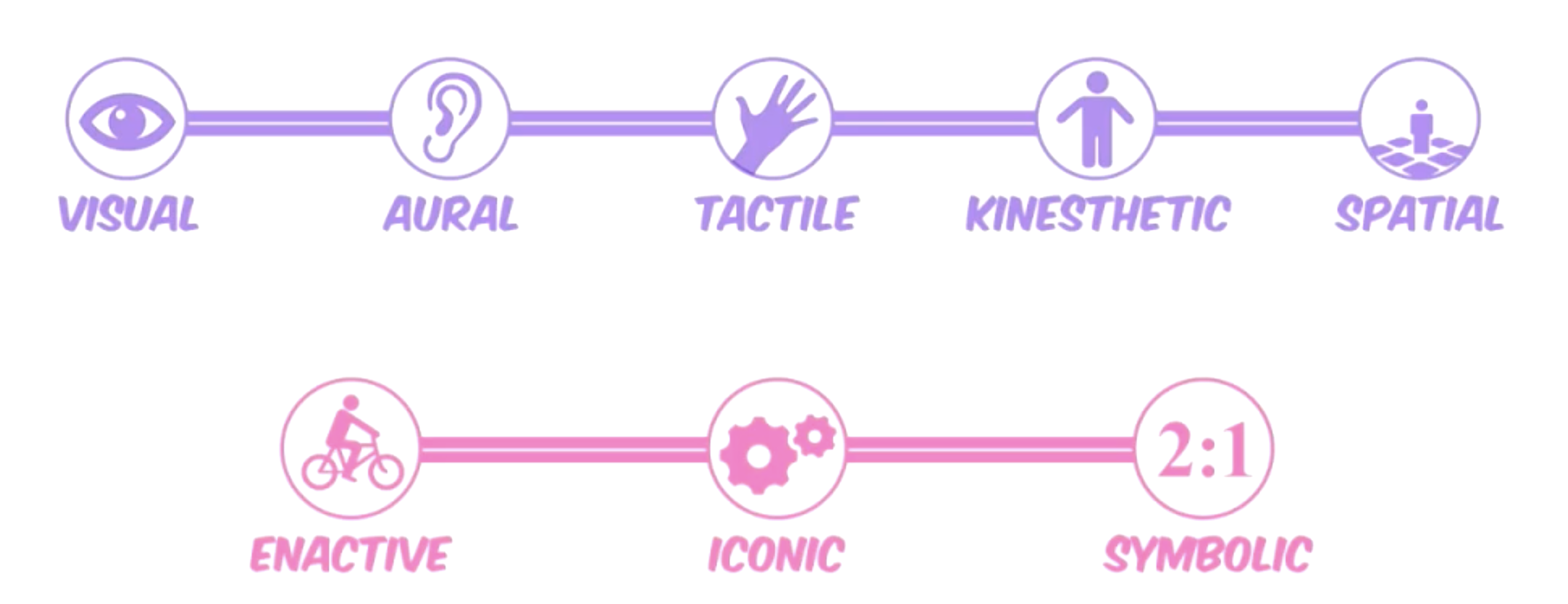
- Believes we are currently inventing the dynamic medium - the next stage in computing. They are:
- computational
- So could model a system, see what it's doing - adding enactive and iconic
- responsive
- if take computation out of the screen, infusing into physical matter (more than just haptic feedback) - adds back aural and tactile, make them room scale and add kinesthetic and spatial
- connected
- And this can make computing humane and powerful again.
- computational
What would it be like to work in a dynamic medium?
- This is thinking from the humanist side - what should we build?
31:00 "when technology takes its own path, it finds certain veins of human capabilities and just drills further in those, and leaves the rest of the capability landscape untouched"
- Communication today, have some words, maybe some sketches. Some things get represented well with spoken language, others are not.
- Systems are not. Get in, model it and explore it - don't explain it with words
- Evidence and explorable models, rather than rhetoric
- Want a dynamic conversation, where create simulations/programs - if you are explaining something, you should have a medium where you can model it, and those models to then be explorable - and those models should draw upon existing knowledge from the world (and that knowledge should be visible back to the model)
- Today, this would all need programming to create - and the vision here is to get things down to be part of the give-and-take of a real conversation
- Presenting
- Can we get farther from PowerPoint, closer to dynamic sketches that you are exploring with the audience - where they are evidence-based models?
- (Today, much of conversation contains anecdotes, and me saying things and you trusting my expertise - but if we can build real-time, working models that draw on existing knowledge, all of what I'm presenting is visible, verifiable, and therefore the trust is not just in my authority but in the information itself.)
- Can we have a presentation where we have large-scale things on a dynamic stage?
- Can we get farther from PowerPoint, closer to dynamic sketches that you are exploring with the audience - where they are evidence-based models?
- Reading Non real-time. Replacement for books and websites?
- Currently, each of us approaching a text with different knowledge see the same material. Can that be changed? Can the material take into account what we know and what we want to get out of something?
- magic ink was a project he wrote about on this topic
- (feel like I heard about that recently)
- magic ink was a project he wrote about on this topic
- Imagine dynamic spatial media, where you download a textbook and that is then put in spatial space around you
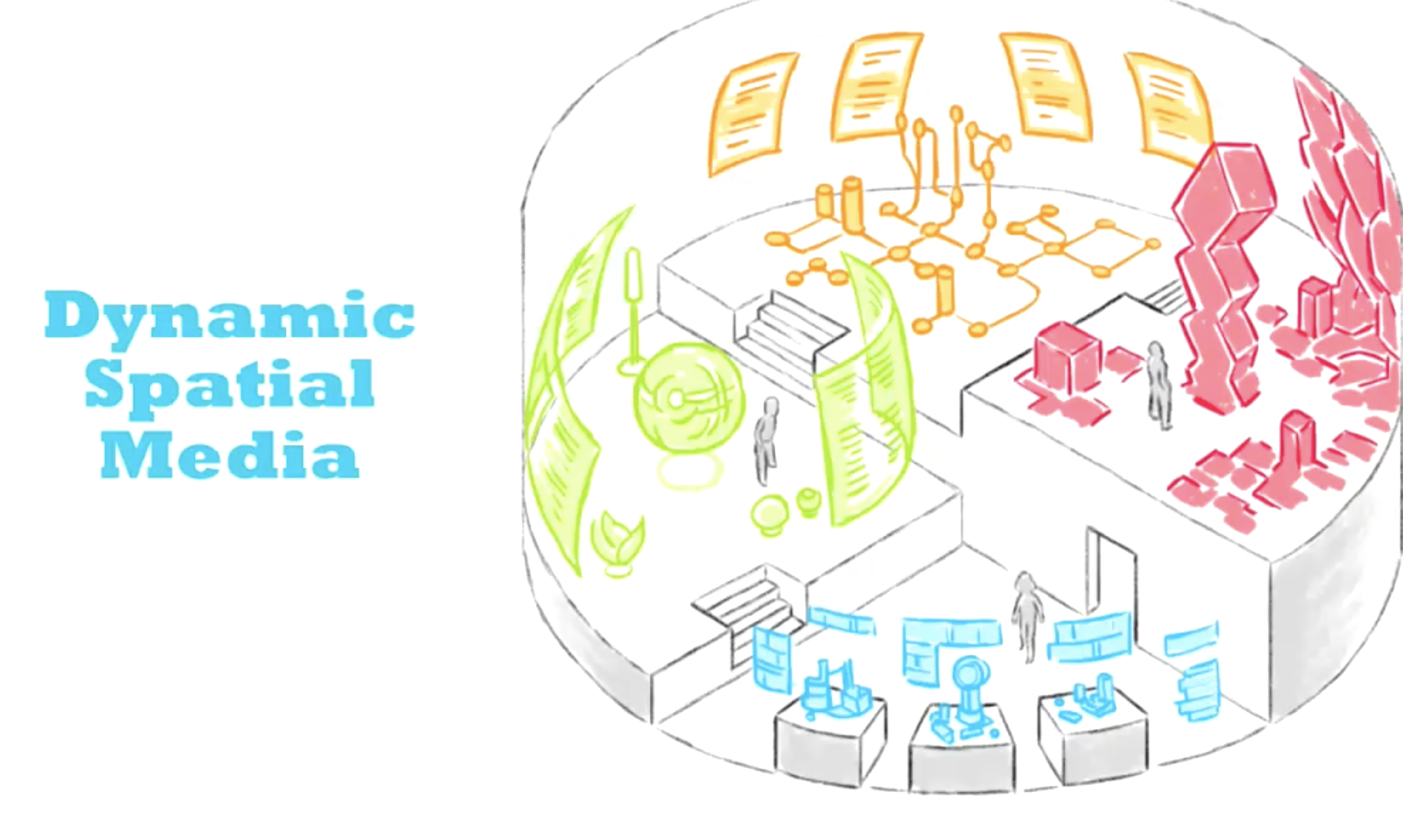
- (Not that this necessarily has to be VR/AR or any particular technology. The tech will work itself out - we are focusing on the human part.)
- Currently, each of us approaching a text with different knowledge see the same material. Can that be changed? Can the material take into account what we know and what we want to get out of something?
- What would writing be in this new medium?
- Programmers is too much involved in the engineering of the stuff. To be effective, would have to allow direct manipulation of the end ideas. Closer to writing as we know it, where you are focusing on the human to human part.
- The big advantage of moving things virtual - even today, when the virtual ability is pretty limited - over working with physical stuff, is that it is dynamic. That trumps everyting.
- Today, dynamic has to be flat - but that's just a limitation of the tech that we are working with today
- (me and maybe also because print had to be that way)
- When we can move the virtual to be just as dynamic and yet more spatial, that's really promising.
- me Even VR for work or AR for work today is still limited to just putting extra screens into virtual reality. It isn't moving enough into capturing more elements of human capability.
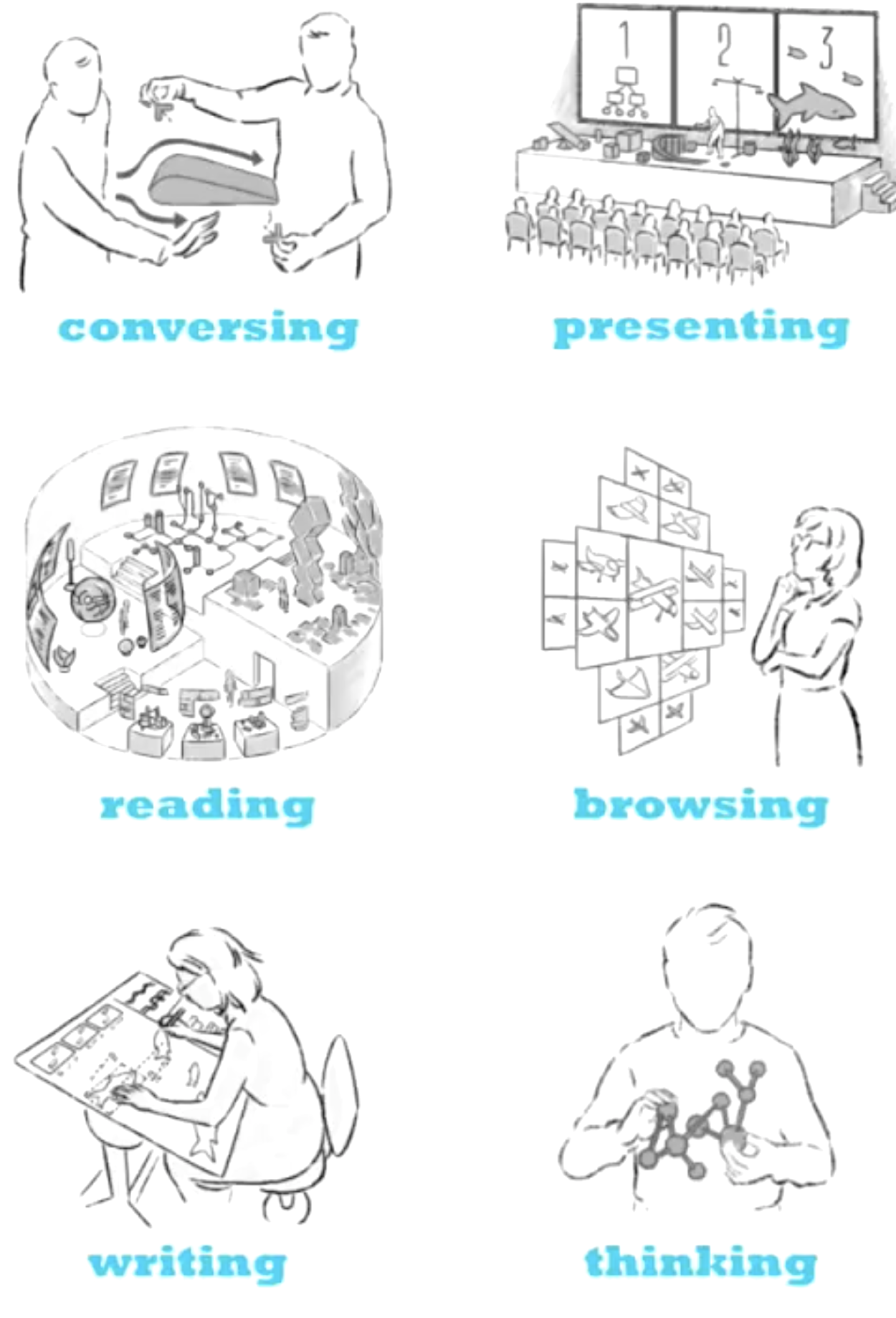
- Today, dynamic has to be flat - but that's just a limitation of the tech that we are working with today
- me (Read/heard something recently about how all of our modern technology is still in many ways following paradigm of printing press - I think I didn't entirely agree, though)
- (think I heard it in a Clubhouse discussion, but didn't write it down because I didn't agree?)
